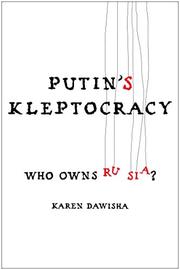NEW: Yesterday, the world was shocked to learn that Russian opposition leader Alexei Navalny is fighting for his life after apparently being poisoned. Here’s what he’s done to expose the rot at the heart of the country’s political system.https://t.co/c0qlooUJpW
— Organized Crime and Corruption Reporting Project (@OCCRP) August 21, 2020
Alexei Navalny was once described as “the man Vladimir Putin fears most,” so it is unsurprising that the blame immediately fell on the Russian president. And for good reason: the Kremlin has been linked in the past to the killings of multiple individuals considered threats, and poisoning is usually the chosen method, Foreign Policy reports.
 Or was it local politicians?
Or was it local politicians?
As Foreign Policy’s Amy Mackinnon wrote, that analysis is flawed, and the culprits were more likely local figures who found it advantageous to remove Navalny for their own purposes. Indeed, Navalny had been campaigning in support of local opposition candidates ahead of next month’s regional elections in the days before he fell ill.
“While political power in Russia is highly centralized under Putin,” Mackinnon wrote, “the system is not without its rogue elements looking to settle personal scores, [and] protect their own economic interests.”
That doesn’t mean Putin is blameless, she added. He has “presided over a system where political opponents, journalists, and human rights activists are assaulted and assassinated, often with impunity,” which encourages even those who do not answer directly to the Kremlin to adopt its tactics for eliminating rivals. RTWT
 Yet even if the ex-KGB officer who now runs Russia didn’t directly order a hit on Navalny, he is still to blame. It is Putin who has empowered intelligence officers and created permissive conditions for vigilantes, notes Stanford’s Michael McFaul, author of Advancing Democracy Abroad. Vladimir Putin is evil. Over the past 20 years, Russia’s current leader has constructed a ruthless dictatorship, he writes for The Post:
Yet even if the ex-KGB officer who now runs Russia didn’t directly order a hit on Navalny, he is still to blame. It is Putin who has empowered intelligence officers and created permissive conditions for vigilantes, notes Stanford’s Michael McFaul, author of Advancing Democracy Abroad. Vladimir Putin is evil. Over the past 20 years, Russia’s current leader has constructed a ruthless dictatorship, he writes for The Post:
He has shut down independent media and civil society organizations, and he has arrested critics and business leaders who dare to challenge his unconstrained powers. Abroad, Putin has annexed Ukrainian territory, sent troops to Syria to prop up one the most brutal dictators of our time, violated American sovereignty in 2016 to try to influence the outcome of our presidential election, and is interfering again in our election now. At home and abroad, Putin’s regime and its proxies have repeatedly killed, or tried to kill, its critics. Navalny may have just become his latest victim.







